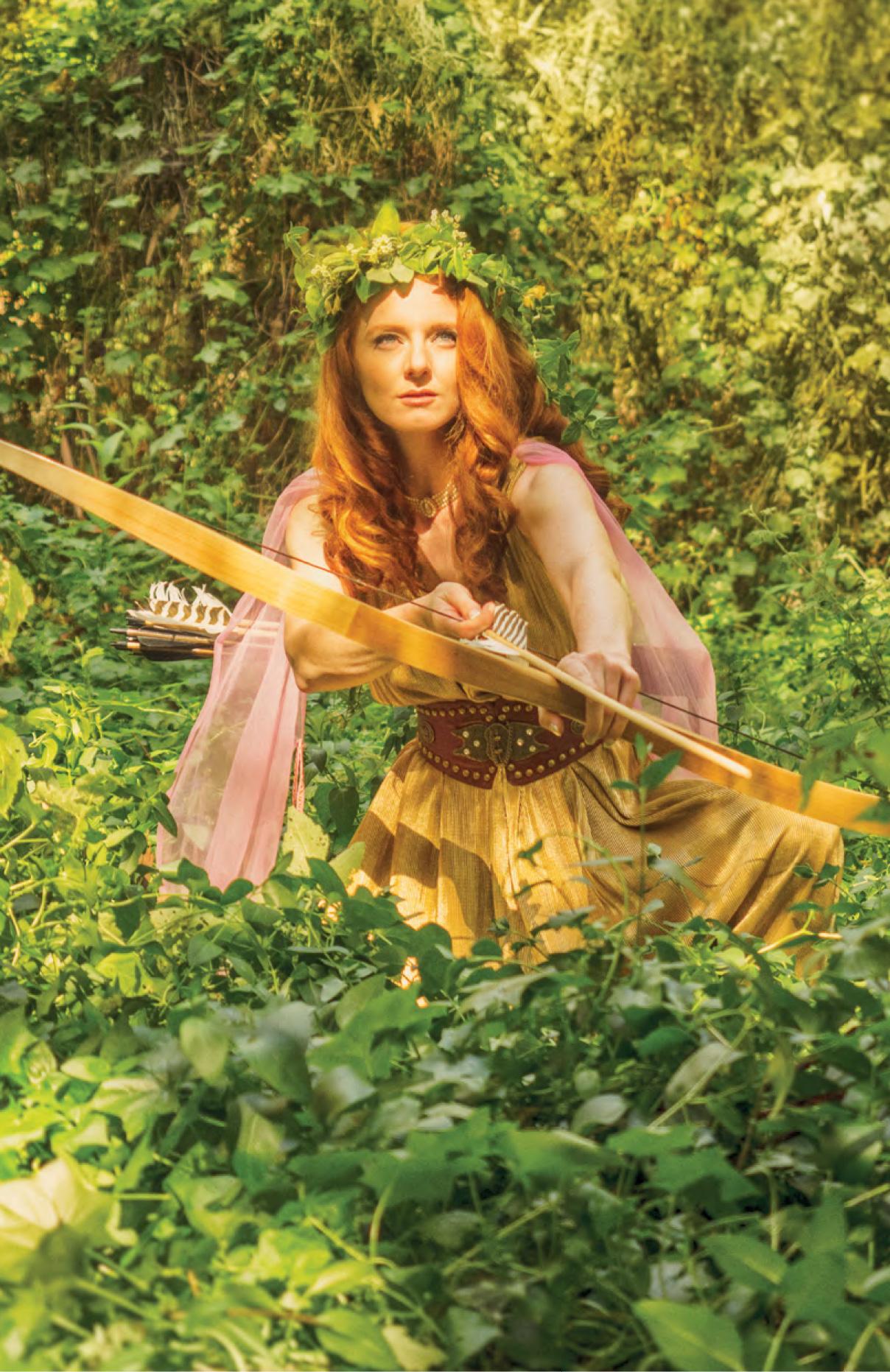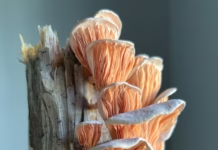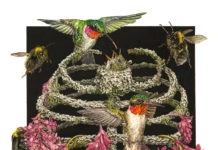In the shadows of mountains and in the wind on mountain-tops
She loves to take her bow
Her bow made all of silver
And shoot off her shafts of woe.
The peaks of great mountains tremble
The forest in its darkness screams …
The whole earth starts shaking even the sea, the sea-life …
And when she has hung up this unstrung bow,
When she has put away her arrows,
She puts on over her flesh a beautiful dress
Then she begins the dances …
This excerpt from the Homeric Hymn to Artemis shows the goddess’s dual nature of terror-inspiring immortal as well as beautiful deity partaking in the refined art of dance, which she does at her twin brother Apollo’s house along with the muses and the graces. Artemis is a goddess of contradictions. Indeed, she is much like Apollo. Although born in the shadows of palms and cypress trees, both Artemis and Apollo are bearers of light. Where Apollo carried the sun across the daytime heavens, Artemis (or Diana, according to the ancient Romans) carried the moon across the star-dappled night sky.
As moon goddess, Artemis is often shown wearing a full-length robe and holding a torch; she looks cool, white, and pure with a crescent hornlike diadem upon her veiled head. But in her other role as a goddess of Nature and of the chase, the tall small-hipped huntress wears a short tunic similar to a modern minidress and shows her bare legs.
Artemis is also a goddess of childbirth and is said to have the power to alleviate the pains that come with delivering a new life in the world. This is, in fact, the first task she undertook.
Artemis and Apollo’s beautiful mother Leto had to give birth in secret as she was being relentlessly hunted by a giant serpent that Zeus’s wife Hera had sent. Zeus had fathered the twins, and Hera’s jealousy was inflamed when she discovered this. Shortly after Artemis was born, she became her mother’s midwife and helped deliver her twin brother Apollo. This will give you an indication of how quickly a goddess can grow up. Her brother Apollo, renowned for his golden bow and piercing arrows, killed the python that
When she was three years old, Artemis asked her father, Zeus, if she too could have a bow and quiver full of arrows. Zeus consented to all that his daughter asked. The three Cyclops were to fashion her bow, quiver, and arrows according to the goddess’s specifications. To let the one-eyed brutes know she meant business, she grabbed a fistful of chest hair and yanked it out of one of their breasts—a small foreshadowing of the wrathful temperament this enfant terrible would come to exhibit.

Artemis was a strong female who would not be seduced— feminist on Mount Olympus. In addition to a silver bow, Artemis asked Zeus that she should remain untouched by men, a virgin forever. Woe to the man or god that wanted to have his way with her. She was deadly serious about her virginity. Artemis was the patron goddess of the Amazons, the ancient race of women warriors from Asia Minor who mixed with men only to have offspring, keeping the infant girls for themselves and sending the baby boys back to their fathers. Yet Artemis also led an entourage of sixty nine-year-old nymphs and twenty virgin handmaidens to watch her hunting dogs and bow when she needed to rest.
Even as childbirth is sacred to Artemis, she would just as quickly shoot down a young girl or woman with her arrows. The sudden deaths of maidens were said to be a result of her far-reaching arrows just as Apollo’s arrows were responsible for the sudden deaths of young boys. Sometimes the fearsome twins would team up and slay together, especially if their dear mother was ever slighted. There is a myth that tells of Leto being disrespected at her very altar by the pompous princess Niobe. She claimed that the goddess Leto could not be so great with merely two children while she herself was fortunate enough to be blessed with seven sons and seven daughters. Even if she lost a few, she said, she would still surpass the pathetic goddess. Niobe should’ve thought before she spoke. Perhaps she forgot Leto’s twins were expert archers. Before Niobe could finish her bragging, Apollo was sending a shower of arrows into all of Niobe’s young boys in what amounted to a bloodbath. Artemis then stepped in and did the same to the girls. Niobe pleaded to the moon goddess to save her last, littlest daughter. Unmoved, Artemis let loose a final arrow. Niobe, now childless, turned to stone through her grief. But those who revered
Artemis would be healed or given the gift of a long healthy life. Another request that Zeus granted Artemis was to be ruler of the stormy mountains. She was queen of animals and lady of the wild beasts. The woodlands and forests were sacred to her as well as the creatures that dwelt within, but especially sacred was the stag. She had four of them—all larger than bulls and with antlers of gold—to pull her chariot. She was said to have chased these magical stags down on foot and then harnessed them to her cart herself. But the goddess that was the protector of animals was also the goddess of the chase and hunted the very animals that were sacred to her. She is even depicted as wearing the pelt of a deer across her body. The goat-footed god Pan, of Arcadia, supplied her with her famous hunting dogs: seven bitches and six hounds.

The goddess dealt harshly with those mortal men who did not revere her or, worse, bragged that they had superior hunting skills. The king of Calydon, Oeneus, forgot to include Artemis in his harvest offerings. All the other gods were given gifts except for her. This filled her with an avenging fury. She sent a giant boar to terrorize the king’s countryside, ravaging the farms, ripping up orchards, swallowing the fruits of vineyards, and devouring flocks of sheep and cattle. Even the peasants weren’t safe from the beast. Stopping this monstrous boar resulted in the deaths of Oeneus’s wife and son. Artemis demands a personal sacrifice from those that dare forget her during religious rites. Only then is the score evened and her wrath assuaged.
While making his matrimonial sacrifices, Admetos, one of the princes of Thessaly and one of the hunters of the Caladonian boar, somehow forgot to include Artemis. The goddess did not take kindly to this omission and left a horrific wedding present in the bedchamber. When Admetos swung the doors open to enter with his bride, he saw that the room was wall to wall with writhing snakes. Artemis’s brother, Apollo, finally came to Admetos’s aid and told him how to placate his vengeful sister.
Just as it was dangerous to forget Artemis during religious offerings, it was also unwise to go boasting that you were better than her. We already saw what happened to the princess Niobe when she bragged about the number of children she bore; kings were dealt with just as harshly. Agamemnon, a noble Spartan warrior and king, was chosen to lead the Greek forces against the city of Troy. The young Trojan prince, Paris, had stolen the Spartan queen, Helen, the wife of Agamemnon’s brother. While all the troops and ships were gathering at the Port of Aulis, Agamemnon went hunting and killed a stag with his arrows. He claimed that Artemis herself couldn’t have made a better shot.
Just as the thousand-ship fleet was ready to depart and sail to Troy, the wind died and the sails slackened. The sea was like a mirror—not a ripple disturbed the surface for days and weeks. The men became restless, arguments broke out, and spirits waned. The army’s food stores were depleted. Some warriors even talked of abandoning the adventure altogether. In desperation, Agamemnon consulted a seer to ask which god had quelled the winds that would carry the Grecian flotilla over the sea. The seer revealed that Agamemnon himself was the cause and that Artemis would not summon the wind again until the Spartan king sacrificed his most beautiful daughter to her. Seeing the Greek alliance and expedition to Troy start to crumble, he directed a messenger to carry word to his wife, Clytemnestra, ordering she send his daughter Iphigenia to Aulis immediately, pretending that she was to be married to the great hero Achilles. Elated, Clytemnestra brought Iphigenia to Aulis herself but learned something was amiss when she ran into Achilles, who knew nothing about this fake wedding.

At this point, the Greek troops were beginning to openly revolt and demand the sacrifice of Agamemnon’s daughter so that Artemis would be appeased and the winds would return so they could begin their heroic journey to Troy. When Iphigenia finally discovered the true reason behind why she was summoned to Aulis, she bravely declared that if Artemis demanded her virgin blood be spilt upon the altar, then she would walk freely to her death. Hearing this, the Greek troops were stunned by the young woman’s courage as she walked to the temple and exposed her neck to the priest’s blade. Blood splashed everywhere as the deadly sacrificial cut was made. Miraculously, in an instant, Iphigenia had been replaced with a stag. The goddess Artemis took pity on the young virgin and whisked her off to Tauris on the Black Sea to become a priestess at Artemis’s temple. Some myths say the goddess made her immortal, and in another story Artemis transforms her into the goddess Hecate, a lesser deity who had similar functions as Artemis, such as being the nocturnal goddess of the moon.
Adonis, the handsome lover of Aphrodite, once made the error of announcing that his hunting skills were as good or better than Artemis’s. The angered goddess sent a wild boar that ran him down, piercing him with its tusks. His weeping lover Aphrodite turned him into a flower called the anemone so she could gaze upon his beauty forever.
Pity the man, whether pious or humble, that inadvertently happened upon Artemis bathing in the woods. Actaeon, a renowned hunter of a royal family, was deep in the forest concluding the day’s hunt when he saw a group of women in a pool in front of an enchanting grotto. What Actaeon stumbled upon was the virgin goddess herself being bathed by several of her nymphs. Never had a mortal’s eyes seen her naked in all her Olympian beauty. The nymphs saw Actaeon first and tried to shield their goddess’s body with their own, but it was too late and Artemis knew it. She wanted to grab her bow but it was out of reach, so she splashed Actaeon with water, saying, “Now you can tell how you saw the virgin goddess naked … if you can!” With that curse, antlers started to sprout from Actaeon’s forehead. Hooves grew where his hands and feet used to be, fur covered his skin, and pointed ears grew out from his head. Soon his transformation into a stag was complete, and seeing himself reflected in the pool of the grotto he panicked. His hunting dogs saw him sprinting off and started to chase their prey, not realizing that it was their master they were hunting down. It wasn’t long before the pack caught up and cornered him, all sinking their sharp teeth into his flesh, tearing the muscle off his bone. Only when Actaeon was finally left lifeless on the leafy forest floor was Artemis satisfied.
The chaste goddess, Artemis, is the antidote to the voluptuous Venus. There are no flirtations in her mythology, though she is depicted as young, beautiful, and athletic. She has fertility aspects as Nature goddess and goddess of the moon yet is herself a virgin. It is easy to provoke her wrath, and she takes swift action against those whom she feels have insulted her in some way. She is a goddess of contradictions that inspired Lord Byron to write:
“Goddess serene, transcending every star!
Queen of the sky, whose beams are seen afar!
By night Heaven owns thy sway, by day the grove,
When, as chaste Dian, here thou deign’st to rove”
—from The Episode of Nisus and Euryalus

































